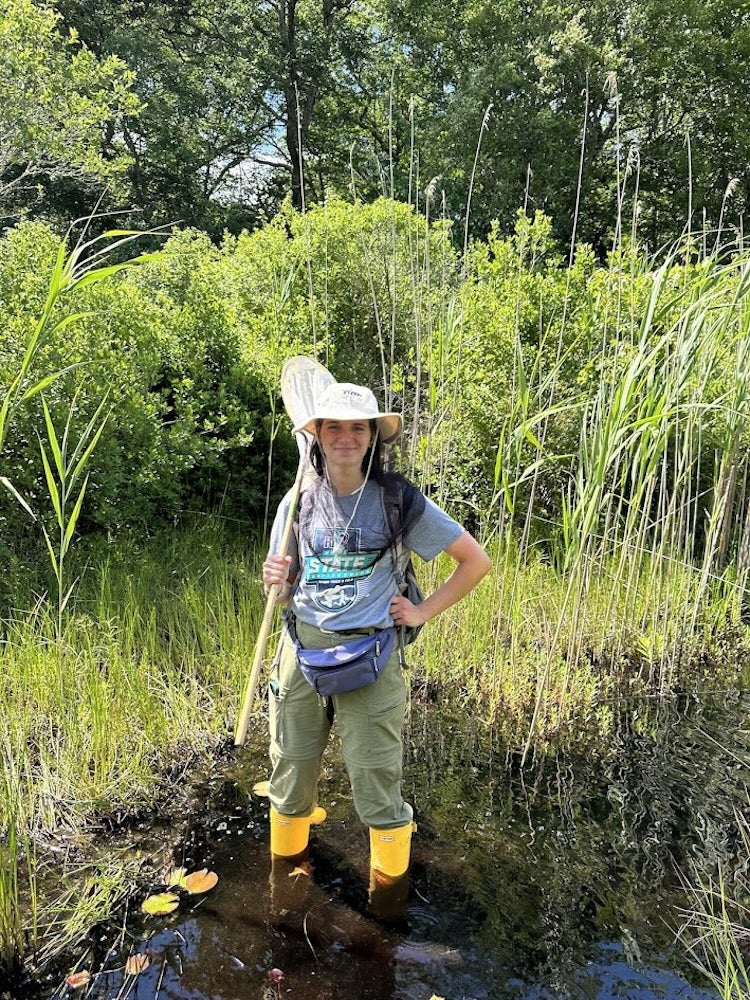Butterfly nets. Rain boots. Clear vials. Coolers filled with ice. These are a few of the supplies Abigail Gill, a biological sciences and environmental science and management double major from Lincoln, RI, used when investigating the pollination ecology of cultivated and wild cranberry plants in Rhode Island this summer.
As part of a Coastal and Environmental Fellowship, Gill assisted with a variety of projects led by The URI Bee Lab, which focuses on the biology and behavior of native and managed bees in Rhode Island. Working with Ren Johnson and senior Biological Sciences major Kate Perzanowski for one such research study, Gill hiked to several different cranberry bogs to survey and collect bees. Back at the lab, they collected various data from the day’s finds. “Soon we will be looking at the pollen underneath the microscope to determine the flower fidelity–how much pollen they have that only belongs to cranberries,” Gill explains.
In addition to her work at the cranberry plants, Gill also assisted with a project run through the Natural Resource Conservation Service, visiting eleven different sites of planted and managed pollinator meadows throughout Rhode Island that are surveyed on a monthly basis. In order to determine how well these meadows are working for pollinators, Gill and Perzanowski joined two other researchers, Casey Johnson and Emma Tondre, in locating and surveying flowers in bloom, measuring vegetation, and catching solitary bees in soapy water vials for later identification by taxonomists.
Steven Alm, Professor of Plant Sciences and Entomology and Gill’s fellowship mentor, praises her “total cooperation and commitment” to the work. “She was a trooper when slogging through a deer fly-infested bog to collect bees pollinating wild cranberries, pinning and labeling thousands of insects in the lab, and collecting bees in different wildflower fields for 7 hours in 90 degree heat,” he says, noting that, as a professor, it is rewarding to see students such as Gill “get as excited as we are about the research.”
Gill points to the hands-on aspect of the fellowship as being instrumental in helping her become a more “versatile” and passionate researcher. “From long term entomologists, to other students, and everyday members of our community, there is such a passionate community surrounding bees and insect conservation–and a lot of people that are willing to learn about it,” Gill says, “I got to attend some outreach and education events, and it has been truly rewarding getting people more interested in what we do. There are a lot of cool things to see out there when you take the time to slow down and see them!”
As for future research, Gill hopes to continue working on bee conservation and pollination ecology. “I am largely interested in how plants and insects interact, so being able to keep doing this kind of work would be a dream come true,” she says. “A large majority of people don’t realize how important our insects are, and there are a lot of misconceptions about bees and insects out there–which I realized very quickly in my short time at the Bee Lab!”
“Being able to contribute to such an important and underrecognized cause is something I appreciate every day while working here,” she adds.

